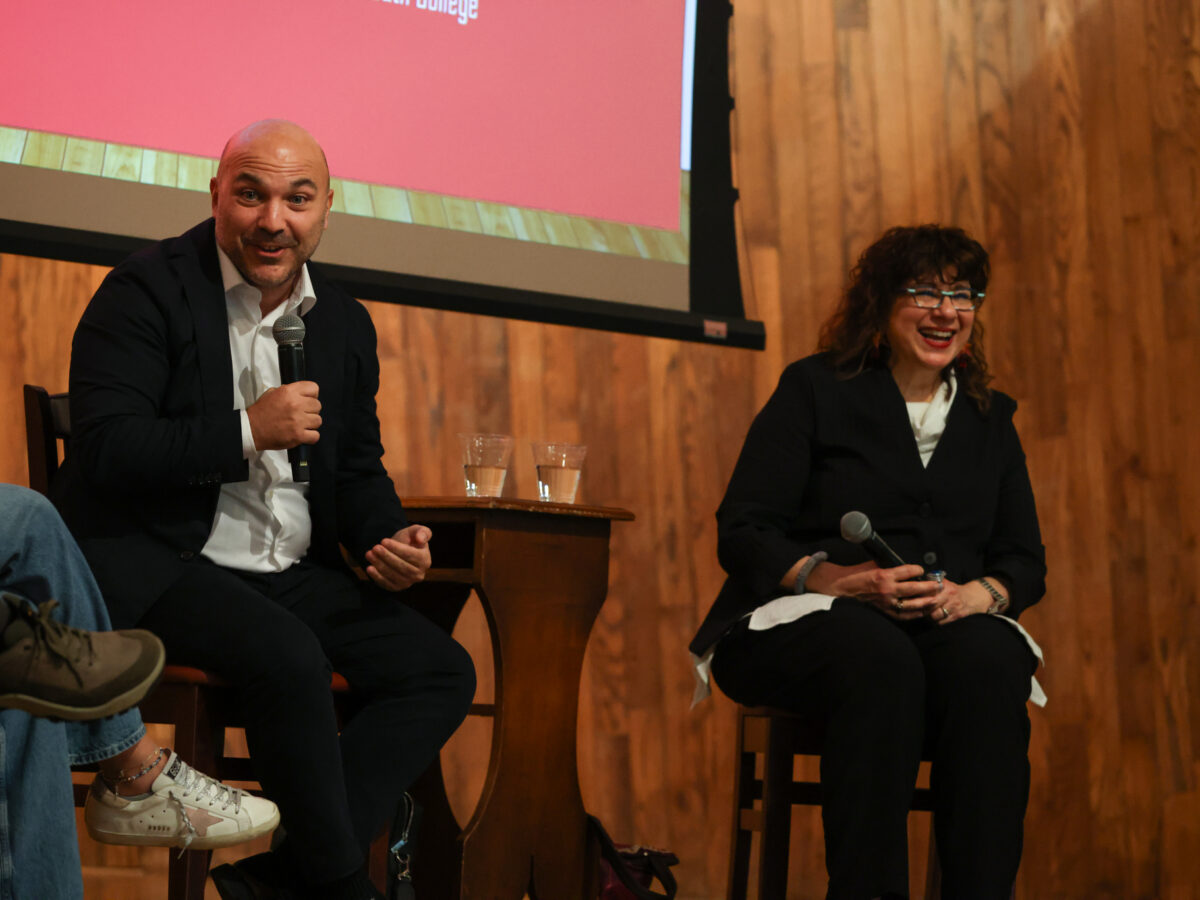Professors tout respect in a time of rancor

Dartmouth's Susannah Heschel and Tarek El-Ariss personify the value of dialogue and collaboration in education.
Studying the past helps us better grasp the present, whether we are condemned to repeat it or not. Two Dartmouth professors created and co-teach a course at the Ivy League school intended to offer historical context to the modern-day strife of the Middle East by exploring the politics, religion and literature of the past.
Susannah Heschel and Tarek El-Ariss visited Exeter in September for an assembly discussion about their course — and how current events can shape a history class as much as history portends the present.
The professors’ appearance was another opportunity for Exeter students to learn the value of dialogue and intellectual humility. The Academy has invited several speakers to campus over the past year who have emphasized the importance of diverse perspectives and listening with empathy to views different from our own.
Last fall, Connecticut Gov. Ned Lamont ‘72, a Democrat, and New Hampshire Gov. Chris Sununu, a Republican, took the assembly stage for a discussion devoid of the rancor that infects most political discourse. Author Monica Guzman told an assembly audience that without connecting with people with differing perspectives, “whoever is under-represented in our life is going to be over-represented in our imagination. And our imaginations are not a great source of truth.”
In their course, “The Arab, the Jew, and the Construction of Modernity,” Heschel and El-Ariss underscore the benefit of collaborative teaching and learning from their respective backgrounds as academics: Heschel is an instructor in religion and the chair of the Jewish Studies program; El-Ariss is a scholar of the French Enlightenment and the chair of Middle Eastern Studies at Dartmouth. Their premise is that the modern-day Middle East and what it means to be a Jew or an Arab today was shaped by the thought and actions of Europeans beginning two centuries ago.
The course has played out in the aftermath of the Oct. 7, 2023, massacre of Israelis by Hamas militants, the subsequent devastating response by Israel in Gaza and the widening of the conflict into Lebanon. The current conflict is not a topic of the curriculum, but it casts a long shadow over the class.
“We are not unaware of what’s happening today, but how do we make this study of history fundamental to understanding and even feeling and feeling strongly about what’s happening today?” says El-Ariss. “One does not preclude the other, and this is the balancing that we need to do and that we do in the class.”
Central to a course such as theirs, in a moment such as the present, is respect, says Hechsel.
“You can tell when someone’s listening to you in a deep way, really listening. Ask yourself, ‘What kind of a listener can I be? How can I listen to this person?’ That’s a skill that we need to develop. And I actually think we have a lot of theological writings that are useful for us in developing that skill, to speak to one another, to learn how to communicate on an issue that can be exquisitely sensitive to many people and can arouse sometimes terrible passions. How can we listen to one another?”